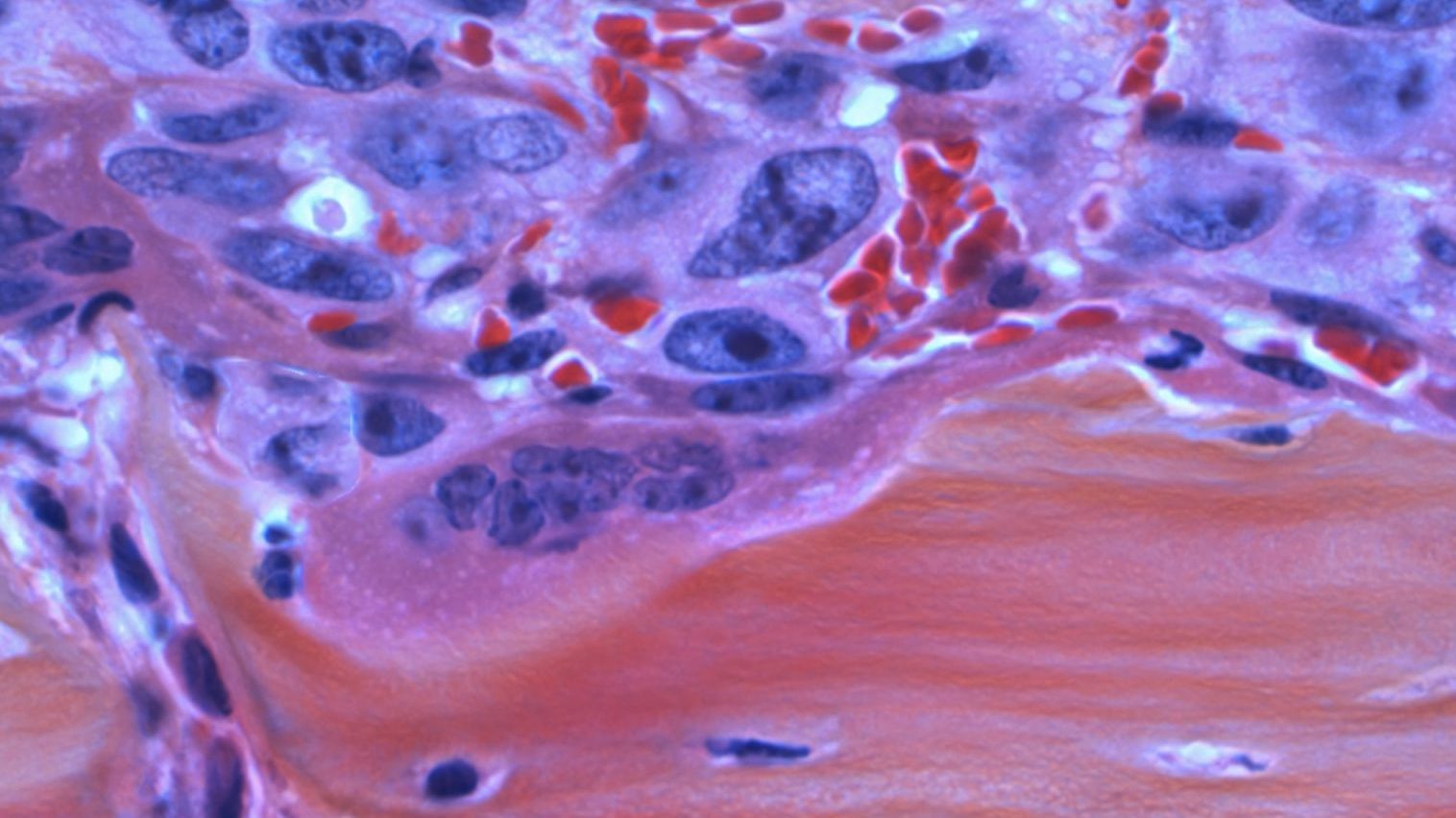Why Cancer Attacks Some Tissues—And Not Others

The human heart rarely develops cancer, but in men that live to the age of 90, the prostate gland almost invariably develops some cancer. Why should this be the case?
According to Harold Varmus, the Director of the National Cancer Institute, we should be focusing more research on why some tissues are especially vulnerable to cancers while others are practically immune. “The remarkable variation, not just among organs, but among organ types in different environmental settings and locations, represents one of the great challenges that I don’t think the cancer community has completely grappled with yet,” he says during Big Think’s Breakthroughs: Cancer panel. “This is an area of provocative research that we ought to be paying more attention to now that we have better tools for looking at genetics.”
The small intestine is another cancer-resistant organ: “We’re all born with 25 feet of small intestine, yet we see fewer than 5,000 cases a year in the United States,” says medical oncologist Deborah Schrag. Compare that with the large intestine: there are just 6 to 9 feet of large bowel, including the colon, yet over 150,000 cancer cases per year—30 times more than the small intestine. This is all the more baffling because, molecularly, the cells of the small and large intestine are pretty similar. The large bowel cells are slightly more involved in reabsorbing water than nutrients, but that alone shouldn’t account for the dramatic difference, says Schrag.
The secret could lie not in the cells themselves but in the microorganisms that exist alongside those cells. Studying the carcinogenic role of microorganisms is a very interesting new theme in cancer research, says Varmus. “The large intestine has trillions of bacteria and the small intestine has much less,” he says. “It may well be that this is a driver of oncogenic change.”
More Resources:
—Information on the Human Microbiome Project, an attempt to map all the microorganisms living in the body that could contribute to diseases like cancer.
The views expressed here are solely those of the participants, and do not represent the views of Big Think or its sponsors.





